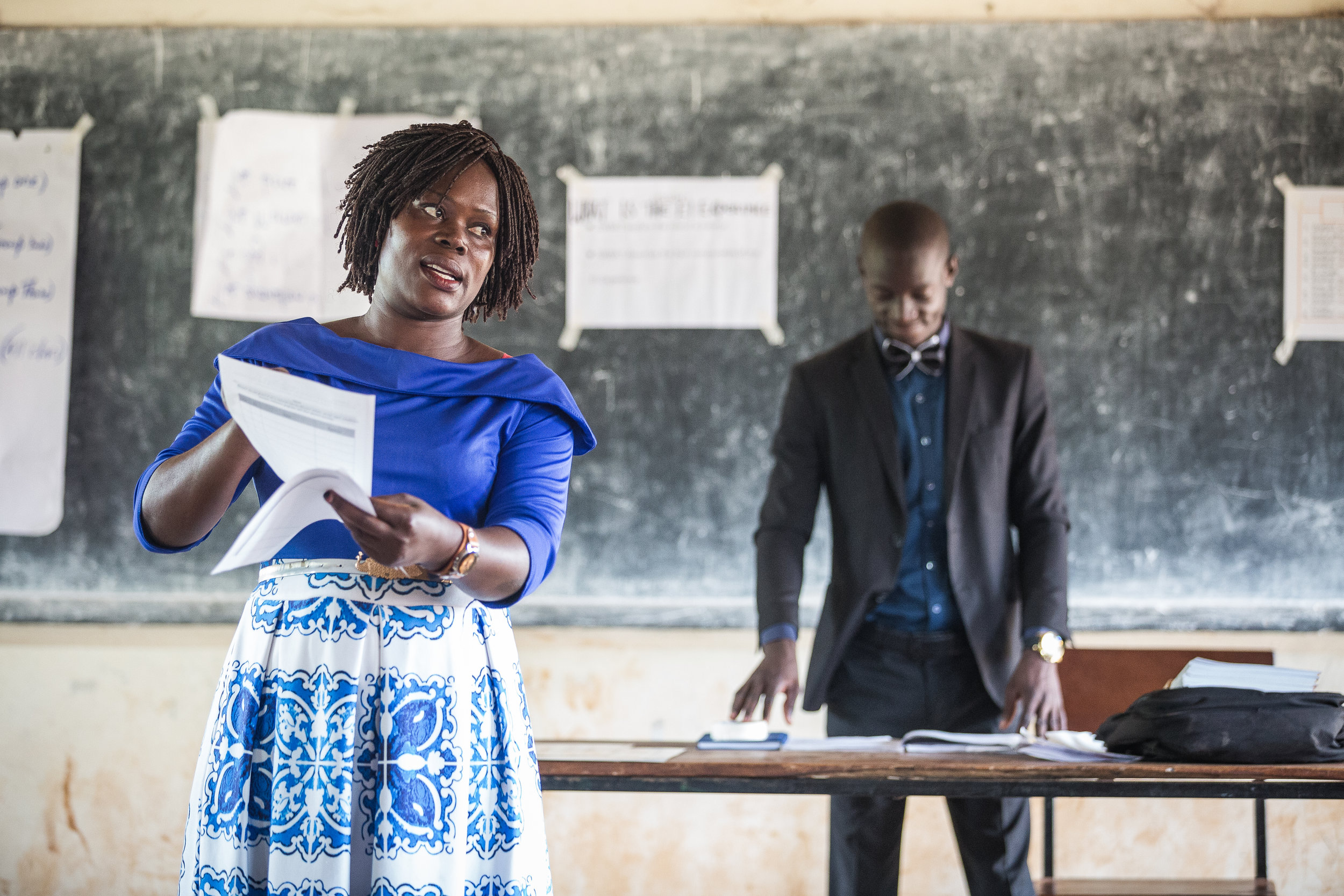
Rwanda
Why Rwanda?

of the population is under the age of 25

of youth are unemployed or underemployed

2022 Rwanda Reach

8,000+
students measurably impacted by our reform, teacher training, and sustainability structures
40%
of all secondary schools
Educate! was invited by Rwanda’s Ministry of Education to serve as a technical advisor to Rwanda’s national curriculum reform, which aims to equip youth with the skills they need to drive the economy, compete on the global stage, and become leaders in their communities. Educate! also supports the implementation of the reform through in-school support and teacher training.
Where We Work in Rwanda
Stories from Rwanda
At just 19, Ornella has already made a name for herself. As the founder and CEO of Code Empowerment Progress, an initiative helping young Rwandans build tech skills, she’s empowering future generations to thrive in a digital world.
Dieudonne’s life took a drastic turn when, at only 17 years old, he was forced to flee from his home country of Burundi due to political instability. Separated from his family, he was placed at the Mahama Refugee camp in Kirehe, Rwanda. When the pandemic hit, Dieudonne worked to gain financial independence by starting his own food production business. Initially, he struggled with his venture due to his inexperience. Then, he joined Educate!, which he says paved the way for his growth and success.
To succeed in a fast-paced world, young people need focus, innovative skills, and creativity. Over the last seven years, Educate! has worked closely with the Rwandan government to embed these critical skills into the national education system. We recently had the pleasure of connecting with State Minister of Education of Rwanda Honorable Mr. Gaspard Twagirayezu and reflect on our partnership thus far.
Samuel is an Educate! Scholar and Student Business Club President in the Educate! Exchange in the Rwamagana district of Rwanda. Amidst school closures and lockdowns caused by the coronavirus pandemic, Samuel set out to find ways to support his community during as well as put into practice the skills he’s acquired through the Educate! Exchange.
Flipping through the pages of a newspaper one morning, Adeline, a Rwandan secondary student, came across a story which instantly captivated her. The article profiled Esther Mbabazi, the first woman in Rwanda to be certified as a commercial airline pilot. Deeply inspired by Esther’s journey, Adeline soon set her sights on flight school. “Why can’t I be the second?” she wondered.
Launching their small business has provided Rwandan secondary students Fausta and Emelyne the opportunity to practice essential hard and soft skills that will better prepare them for success after graduation. These skills, the girls say, have helped them build their self-confidence, while expanding their view of what’s possible.
This June students from across Rwanda came to Kigali to compete at Educate!’s first ever National Student Business Club Competition! Students from 11 schools showcased their innovative, eco-friendly, and impactful business products — all designed while still in secondary school.
A new study from Mathematica Policy Research examined Educate!’s innovative approaches for enhancing teacher quality at scale. The study, which looked at organizations supported by the multi-donor Partnership to Strengthen Innovation and Practice in Secondary Education (PSIPSE), distilled learnings from the experiences of eight organizations implementing in-service teacher training programs. The findings offer practical lessons about how to design, implement, and scale efforts to train, motivate, and support teachers.
Entrepreneurship students have been preparing for this moment all year—products perfected and pitches practiced—with the hopes of advancing on to the National Student Business Club Competition next year.











Initially launched in Rwanda in 2016, Educate!’s approach to co-designing an employment-focused subject in secondary school is going national. Building on a strong policy foundation, our intensive two-year teacher training model is now reaching every secondary school across the country. In close partnership with the government, this approach will deliver education that builds practical skills, reflects the labor market and represents meaningful systems change.